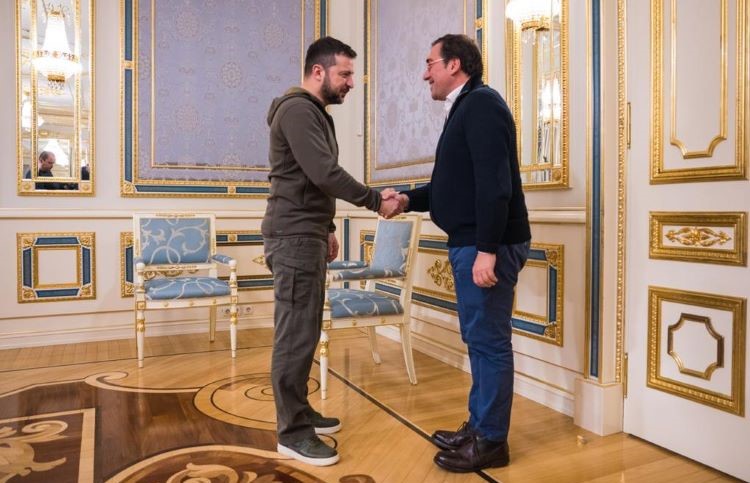The Diplomat
The Minister of Defence, Margarita Robles, announced yesterday that Spain will soon make new arms deliveries to Ukraine, which used the occasion of a NATO parliamentary meeting being held in Madrid to demand more military aid from allied countries to combat the Russian invasion.
Robles praised the “bravery” of the Ukrainian people before the NATO Parliamentary Assembly, a forum which, in its 68th annual session, brings together parliamentarians from all NATO countries and around 100 members from 15 partner countries until Monday.
A Ukrainian delegation is also taking part, one of whose representatives explained in the presence of the Spanish minister that her country needs more military aid “as soon as possible”, such as Hawk missile systems, of which Spain has already sent four launchers this month and is preparing to send another two in the near future.
But the Ukrainian delegate called for more military aid from NATO countries, in the form, for example, of howitzers and mortars “that could be used very effectively by the Ukrainian armed forces”.
In this respect, Robles maintained that Spain has been sending material to Ukraine since the beginning of the invasion last February, and said that next week there will be a new “important” supply, which he did not wish to reveal for security reasons. In any case, he acknowledged that one of Ukraine’s current needs is anti-aircraft defence, and assured that “in this area” he would continue to collaborate.
For his part, the Minister of Foreign Affairs, José Manuel Albares, who also spoke at the Assembly, reaffirmed Spain’s “commitment” to NATO values “in these complex and convulsive times in the world, probably the most complex since the fall of the Berlin Wall”.
“Spain is a reliable partner and committed to the values of the UN Charter”, added the minister, who reiterated the Spanish government’s support “for the territorial integrity and sovereignty of Ukraine”.
Albares recalled that, on his recent visit to Kiev, he had brought a humanitarian aid package of 30 ambulances, and added that last Friday, the government sent a package of 14 generators in view of the “harsh and difficult winter” that is coming to Ukraine.
He also indicated that a team from the Spanish Judicial Police is “helping the Ukrainian Prosecutor’s Office to investigate the war crimes that are being committed”.
Speaking to journalists, the minister said that both the EU and NATO “will spare no effort” to “guarantee the security of critical infrastructures” following the confirmation of the “attack” on the Nord Stream gas pipelines.
“Europe cannot be subjected to anyone’s gas blackmail,” said Albares, indicating that, since the explosions at the Swedish gas plant became known, “there was no doubt” that it was an “attack”. The Swedish authorities announced Friday that the explosions were deliberate.
Meanwhile, the First Vice-President and Minister for Economic Affairs and Digital Transformation, Nadia Calviño, who also spoke at the Assembly, claimed the ‘Iberian exception’ as a tool to “not be subject to blackmail by Russia”.
Calviño insisted that the Iberian model “should be extended to the whole of the EU” in order to “put the problem of inflation behind us as soon as possible”.
The Vice-President applauded the fact that Spain does not have the same dependence on Russian energy supplies as countries such as Germany and Italy, which she blamed on the “diversification over the years” of Spain’s supplies and the “significant penetration of renewable energies”. “This allows us to face Putin’s blackmail with greater strength”, he said.






